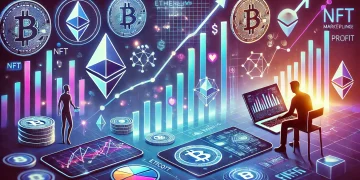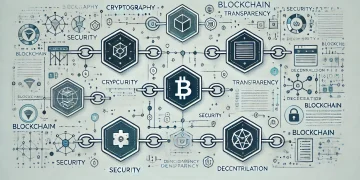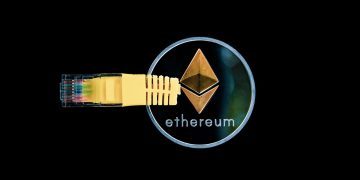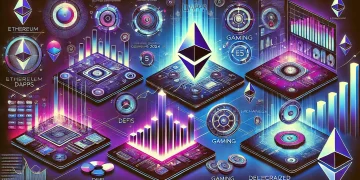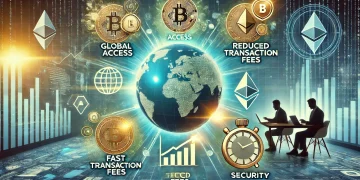In recent years, Non-Fungible Tokens (NFTs) have taken the digital world by storm, quickly moving from niche communities of art collectors and tech enthusiasts to becoming a multi-billion-dollar market. But NFTs are more than just digital art; they represent a new frontier for businesses to explore unique opportunities and revenue streams in the digital economy. From tokenizing digital assets to unlocking new forms of customer engagement, NFTs are reshaping the business landscape.
For companies seeking to innovate in the digital age, understanding NFTs and how they can be used is crucial. This guide will break down the concept of NFTs, explore their applications across industries, and reveal how businesses can harness this technology to generate new revenue streams.
What are NFTs? A Quick Overview
Non-Fungible Tokens (NFTs) are unique digital assets that are stored on a blockchain. Unlike cryptocurrencies like Bitcoin or Ethereum, which are fungible (each unit is identical and can be exchanged one-for-one), NFTs are one-of-a-kind or part of a limited collection, each with distinct value and properties. This uniqueness makes them perfect for representing ownership of digital or physical assets, such as artwork, music, video clips, or even real estate.
NFTs are usually built on blockchain platforms like Ethereum, using smart contracts to define ownership and transfer rights. When a person purchases an NFT, they acquire a token that certifies ownership of the digital item or experience, even if the digital file itself can be freely copied.
Key Features of NFTs
To better understand how businesses can use NFTs, it’s helpful to first look at some of the key features that make NFTs unique:
- Uniqueness: NFTs represent something distinctive or rare, which can make them more valuable. This could be a piece of digital art, a limited-edition collectible, or even a virtual real estate plot in a video game.
- Ownership: Blockchain technology ensures that ownership of the NFT is traceable and immutable. Even if the digital asset is copied, the ownership record on the blockchain proves who holds the original.
- Programmability: NFTs can be programmed with additional functionality using smart contracts. For example, an NFT could automatically pay royalties to the creator each time it is sold on a secondary market.
- Interoperability: NFTs can be transferred across different blockchain platforms, and they can be used in multiple applications, from games to marketplaces, offering flexibility in how they are utilized.
- Scarcity: NFTs can be issued in limited quantities, creating a sense of scarcity that drives up their value. This is similar to physical collectibles, like limited-edition baseball cards or rare stamps.
How NFTs are Used in Business
While the most prominent use cases for NFTs have been in digital art and collectibles, businesses across industries are exploring how to use NFTs to create new revenue streams and engage customers in innovative ways. Let’s explore some practical applications of NFTs in business:
1. Digital Collectibles and Exclusive Content
One of the earliest and most successful applications of NFTs is in creating digital collectibles. Many businesses, especially those in entertainment and sports, have successfully launched NFT-based products that cater to collectors. For example, the NBA’s Top Shot platform allows fans to purchase digital collectibles of iconic basketball moments, which are authenticated and limited in supply.
Beyond entertainment, brands can create exclusive digital content or experiences that are tokenized as NFTs. This could include limited-edition products, behind-the-scenes access, or VIP experiences that only NFT holders can access. Luxury brands, for instance, can use NFTs to authenticate and add value to their high-end products by linking them to digital counterparts.
2. NFTs as a Marketing Tool
NFTs are becoming a powerful marketing tool for businesses looking to create buzz and engagement. By minting limited-edition NFTs and giving them to loyal customers, businesses can create a sense of exclusivity and reward for their most dedicated fans.
For example, in 2021, Coca-Cola released an NFT collection to raise funds for charity, offering fans unique digital assets tied to the brand’s history and iconic imagery. This created significant publicity while generating revenue for a good cause. Similarly, brands can issue NFTs tied to special promotions, unlocking discounts, or providing access to early product launches.
3. Tokenizing Physical Assets
NFTs can represent more than just digital assets—they can also be tied to real-world, physical items. This creates an opportunity for businesses to sell physical products alongside digital twins. For instance, a fashion company could sell an exclusive pair of sneakers that comes with an NFT proving ownership and authenticity. In the art world, NFTs can serve as certificates of authenticity for physical artworks, ensuring the provenance and protecting the value of the artwork.
This trend is gaining traction in the luxury goods market, where brands are exploring the use of NFTs to prove authenticity and fight counterfeiting. By creating a digital twin of each physical item sold, consumers can verify ownership and resale history via the blockchain, ensuring the item’s value and authenticity.
4. NFTs in Gaming and Virtual Worlds
The gaming industry is one of the most exciting areas for NFTs, with virtual worlds and gaming environments offering immense opportunities for tokenization. Players can buy, sell, and trade in-game assets like skins, weapons, or real estate as NFTs, allowing them to truly own and control their digital items.
For example, Decentraland and The Sandbox are virtual worlds where users can buy plots of virtual land as NFTs and develop them with their own creations. This creates new revenue streams for businesses, as companies can sell virtual goods, rent digital real estate, or create branded experiences within these platforms.
Gaming companies, brands, and content creators are leveraging NFTs to offer players unique experiences, while also opening up new opportunities for monetization. The ability to transfer NFTs across games and platforms also enhances their appeal, as players are no longer locked into a single ecosystem.
5. Crowdfunding and Raising Capital
Businesses and startups are increasingly looking at NFTs as a way to raise capital. By issuing NFTs tied to early access, exclusive benefits, or equity in the form of tokenized shares, companies can create a new form of investment. This type of crowdfunding allows businesses to tap into their community of supporters and offer them something tangible in return.
This model is especially appealing to artists, musicians, and creators who want to maintain control over their work while monetizing it. Instead of relying on traditional investors or platforms, they can raise funds directly from their fans by selling NFTs that give holders access to exclusive content or experiences.
6. Loyalty Programs and Memberships
NFTs can also be used to enhance customer loyalty programs. By issuing NFTs as rewards for purchases or customer engagement, businesses can create a new level of exclusivity. These NFTs can act as digital membership cards, unlocking special discounts, offers, or even participation in community decision-making.
For instance, a restaurant could issue NFT memberships that offer holders access to exclusive dining events, menu items, or discounts. Since NFTs can be sold or transferred, this creates a secondary market where memberships could become more valuable over time. This not only drives customer loyalty but also creates a potential revenue stream from NFT sales and resales.
Benefits of NFTs for Businesses
NFTs offer a number of benefits for businesses, particularly when it comes to creating new revenue streams and engaging customers. Some of the key benefits include:
- New Revenue Streams: NFTs provide businesses with the ability to generate income in ways that were not possible before. From selling digital collectibles to tokenizing real-world assets, NFTs open up numerous monetization opportunities.
- Direct Customer Engagement: NFTs allow businesses to interact directly with their customers in more meaningful ways. By offering exclusive content, personalized experiences, and rewards through NFTs, brands can build stronger relationships with their audience.
- Scarcity and Exclusivity: By creating limited-edition NFTs, businesses can drive demand through scarcity, creating a sense of exclusivity that encourages customers to make purchases. This is particularly effective in industries like fashion, art, and entertainment, where exclusivity is highly valued.
- Brand Differentiation: Being an early adopter of NFT technology can help businesses stand out in their respective markets. NFTs signal innovation and forward-thinking, helping brands appeal to tech-savvy audiences and positioning them as leaders in digital transformation.
- Ownership and Authenticity: NFTs provide a secure, blockchain-based method for proving ownership and authenticity. This is particularly important in industries where counterfeiting is a major issue, such as luxury goods, art, and collectibles.
- Global Reach: Since NFTs exist on blockchain platforms, they can be bought, sold, and traded across borders without the need for intermediaries. This gives businesses access to a global audience, making it easier to tap into new markets and grow their customer base.
Challenges of Using NFTs in Business
While NFTs offer exciting possibilities, there are challenges that businesses need to be aware of:
- Environmental Concerns: Most NFTs are currently minted on the Ethereum blockchain, which uses a proof-of-work consensus mechanism that is energy-intensive. This has raised concerns about the environmental impact of NFTs, and businesses need to consider how they can address these issues—either by using more sustainable blockchains or supporting carbon offset projects.
- Legal and Regulatory Issues: The legal status of NFTs is still evolving, and businesses need to navigate potential regulatory challenges, especially when it comes to intellectual property, taxes, and securities law. Companies should seek legal advice to ensure they are compliant with local regulations.
- Market Volatility: The NFT market can be volatile, with prices fluctuating dramatically. This presents a risk for businesses that rely heavily on NFT sales for revenue. It’s essential for businesses to diversify their offerings and avoid over-reliance on NFTs as a primary income source.
- Consumer Education: Since NFTs are still a relatively new concept, businesses may face challenges in educating their customers about how to use and purchase NFTs. Clear communication and support will be essential to overcome this barrier.
The Future of NFTs in Business
The rise of NFTs is more than just a trend—it’s a fundamental shift in how we think about digital ownership, engagement, and commerce. As more businesses explore NFTs, we can expect to see new and innovative applications emerge, from tokenized rewards programs to digital real estate transactions.
In the near future, NFTs will likely become a standard part of the digital toolkit for businesses across industries. Brands that embrace NFTs early will have a competitive advantage in creating new revenue streams and engaging with their customers in more meaningful ways.
Conclusion
NFTs offer a unique opportunity for businesses to innovate and explore new revenue streams in the digital age. From creating digital collectibles and exclusive content to tokenizing physical assets and using NFTs as marketing tools, the possibilities are vast. While challenges exist, the benefits of NFTs—greater customer engagement, new monetization opportunities, and enhanced brand differentiation—make them a valuable asset for forward-thinking businesses.














